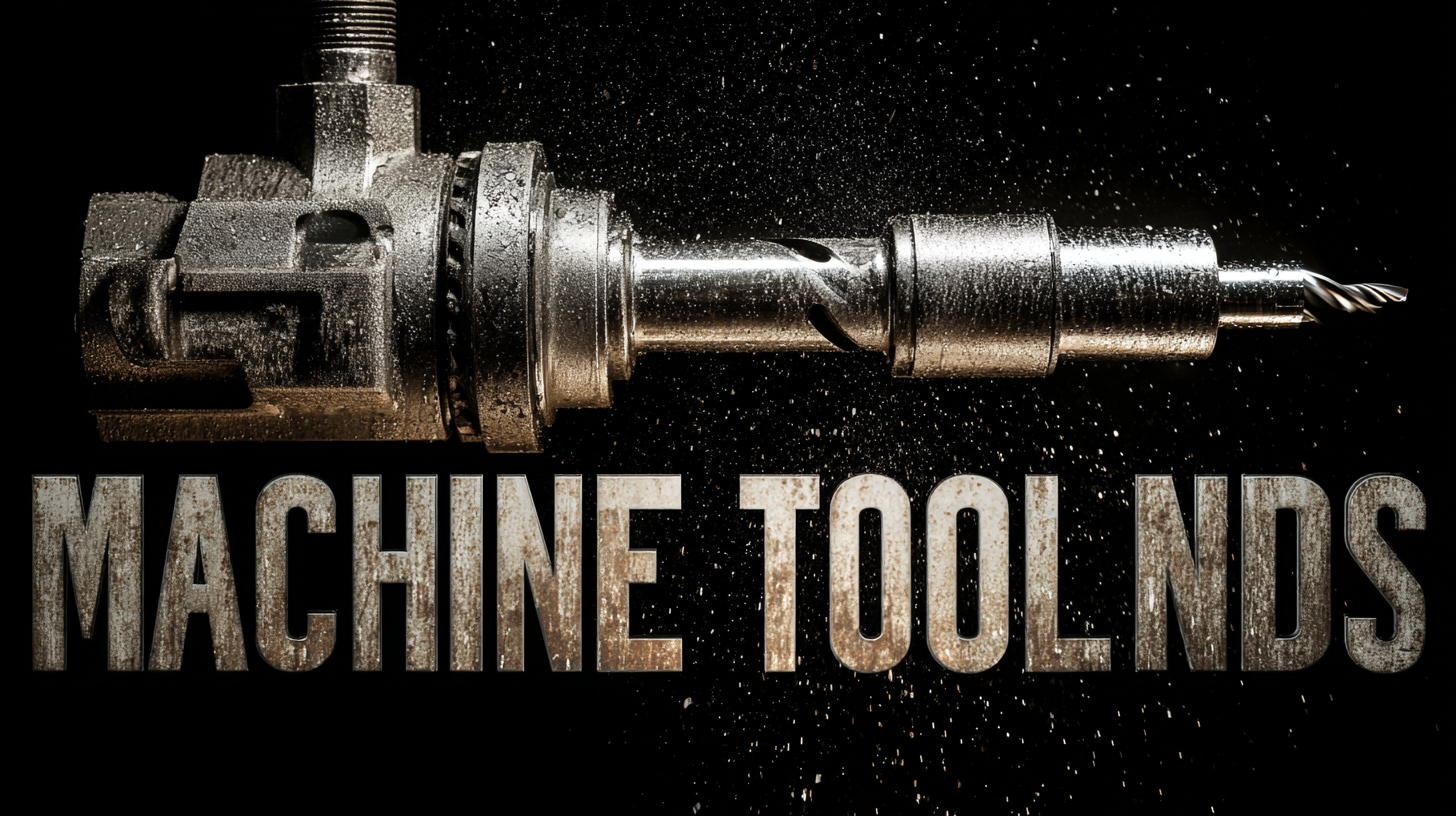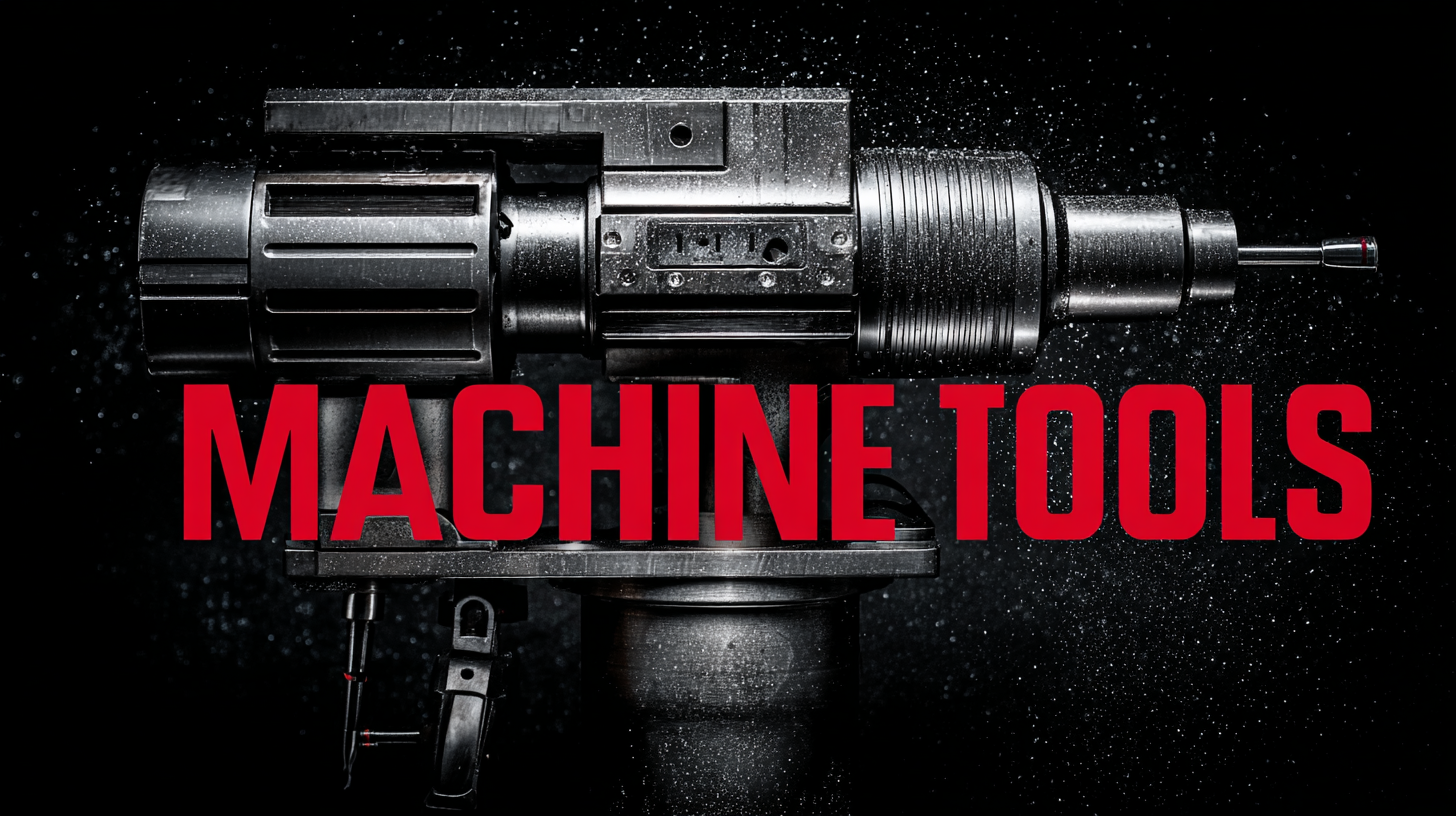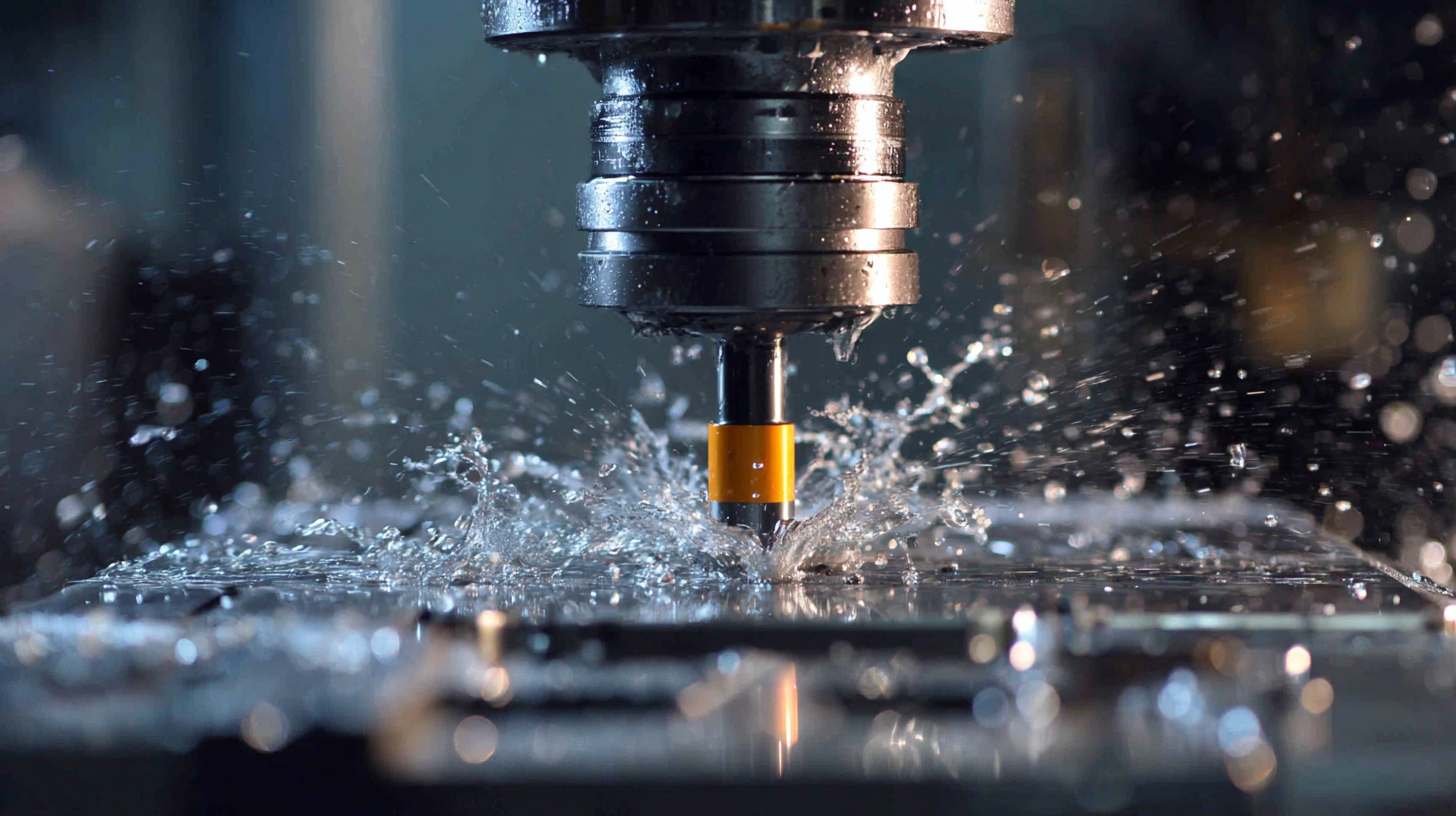The Definitive Handbook to Selecting the Best Machine Tools for Your Manufacturing Needs
In today’s rapidly evolving manufacturing landscape, the selection of the right machine tools is paramount for achieving optimal efficiency and quality in production processes. As industries across the globe are increasingly turning to advanced technologies, the ability to choose machine tools that align with specific manufacturing needs becomes a strategic advantage. "China Quality Manufacturing" stands out as a global partner in this endeavor, offering an extensive range of high-quality machine tools designed to meet diverse operational demands.

This handbook serves as a comprehensive guide to navigating the complexities of machine tool selection, providing insights into key factors such as precision, reliability, and cost-effectiveness. By understanding these essential elements, manufacturers can harness the full potential of their production capabilities, ensuring they remain competitive in a global market.
Understanding Your Manufacturing Requirements for Optimal Tool Selection
Selecting the right machine tools for your manufacturing needs involves a deep understanding of your production requirements. In the age of Industry 4.0, businesses are increasingly adopting emergent technologies that facilitate rapid digital transformation. This shift is essential for optimizing decision-making and enhancing the efficiency of manufacturing processes. Effective tool selection not only boosts productivity but also aligns with the latest advancements in automation and risk management. Companies should assess their specific manufacturing goals, such as the types and volumes of products they produce, to ensure that the tools they choose can accommodate their operational demands.
Moreover, efficient inventory management plays a critical role in determining the best machine tools for production. An effective inventory management system allows companies to track raw materials and finished goods, ensuring they have the necessary resources on hand to maximize production capabilities. Complementing this is an understanding of material requirements planning (MRP), which aids in streamlining supply management. By integrating these elements, manufacturers can establish a comprehensive approach to tool selection that not only meets current needs but also positions them for success in a rapidly evolving market landscape.
Key Machine Tool Types and Their Applications in Modern Manufacturing
In modern manufacturing, selecting the right machine tools is crucial for optimizing production efficiency and quality. The landscape of machine tools is diverse, encompassing various types that serve specific applications. Ordinary machine tools, including lathes, drilling machines, and milling machines, are foundational in many mechanical processing fields. These tools are particularly suited for tasks requiring general precision and are expected to see continued demand as industries strive for higher productivity. According to a recent report, the machine tool market in China is projected to grow significantly, reflecting an increasing need for versatile manufacturing solutions.
Moreover, advanced technologies such as quantum machine learning are beginning to influence this sector. Recent collaborations in the automotive industry have highlighted the integration of innovative technologies for image classification and 3D object detection, which can enhance automated processes in manufacturing settings. Additionally, the rapid tool change system market is anticipating a growth that will exceed $5.1 billion by 2025, driven largely by the need for enhanced manufacturing efficiency and flexibility. As smart manufacturing technologies evolve, choosing the appropriate machine tools will become even more critical to adapt to these changing dynamics and leverage existing capabilities efficiently.
Factors to Consider When Evaluating Machine Tool Performance
When evaluating machine tool performance, several critical factors can significantly influence your selection process. First and foremost, understanding the specific application and the required precision is essential. Different manufacturing tasks may require unique tolerances and capabilities, so assessing the industry needs and output volume will guide you towards suitable machine tools.
Additionally, the technology employed within the machine tools plays a crucial role in their performance metrics. Features such as automation, software integration, and real-time monitoring capabilities can enhance the efficiency and accuracy of machining processes.
Furthermore, evaluating the maintenance requirements and operational costs over the machine's lifespan is pivotal. These factors not only affect performance but also influence overall productivity and profitability in the long run. By carefully considering these aspects, manufacturers can make informed choices in selecting the best tools tailored to their specific production needs.
Top Brands and Models in the Machine Tool Industry: A Comprehensive Review
When it comes to selecting machine tools for your manufacturing needs, understanding the top brands and models in the industry is crucial. Renowned names like Haas Automation, Siemens, and Mazak have made significant strides in producing cutting-edge machinery that caters to various manufacturing processes.

Haas Automation is particularly celebrated for its CNC machines, which combine precision, durability, and ease of use, making them ideal for both small workshops and large-scale operations. Meanwhile, Siemens stands out with its advanced automation technologies and high-quality control systems that enhance production efficiency.
In addition to these giants, specialized brands such as Fanuc and Okuma offer unique advantages in specific applications. Fanuc, for example, is known for its innovative robotics and unparalleled motion control capabilities, which are vital for complex manufacturing tasks. Okuma’s hybrid technology integrates traditional and advanced machining processes, providing versatility that can accommodate evolving production demands. By evaluating the strengths and applications of these top machine tool brands, manufacturers can make informed decisions that align with their unique operational requirements, ultimately leading to improved productivity and product quality.
Future Trends in Machine Tools: What to Expect in the Coming Years
The machine tools market is set for significant growth in the coming years, fueled primarily by increasing demand from the automotive and aerospace industries. By 2024, the market is anticipated to surpass $97.1 billion, with a compound annual growth rate (CAGR) of 7.5% projected from 2025 to 2034. This growth reflects not only a resurgence in manufacturing but also an evolution in technology that aligns with the future trends in advanced manufacturing processes.

In addition to the promising outlook for machine tools, the resolution market is also gaining traction. Valued at $120 million in 2022, it is projected to expand to $250 million by 2030, riding a CAGR of 10.5% from 2024 to 2030. This highlights the shift towards more precise and effective tools that are becoming essential in modern manufacturing ecosystems. As industries increasingly adopt automation and smart manufacturing techniques, understanding these trends will be crucial for businesses aiming to remain competitive and meet the evolving demands of the global market.

